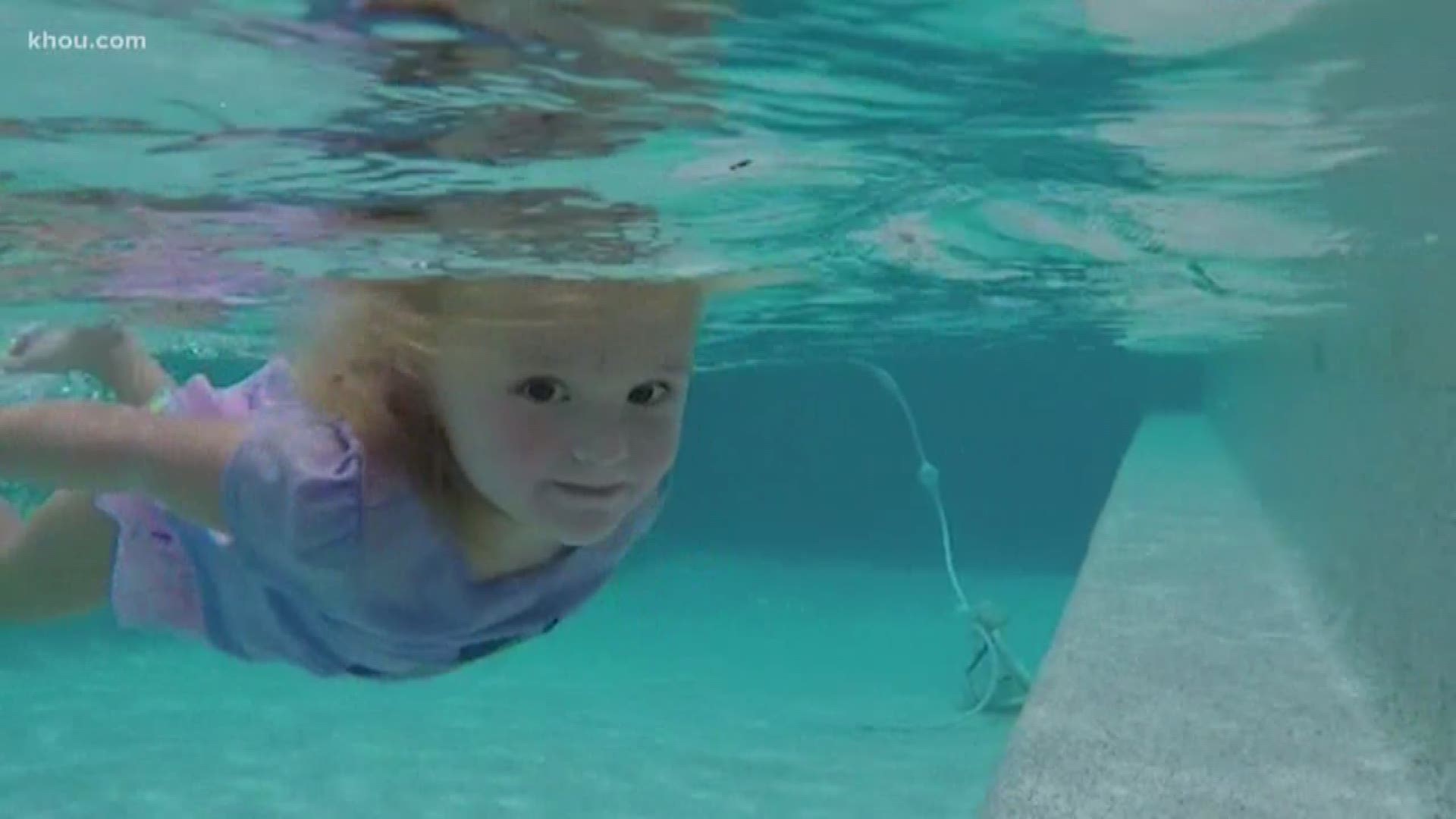HOUSTON — In the last three days, there have been five drownings or near drownings in the Houston area.
Drowning is the second leading cause of death among children under 14 years old.
There are several things you can do to prevent tragic accidents when you take your family swimming.
The Texas Drowning Prevention Alliance recommends people follow the ABCD’s of water safety.
- “A” is for adult supervision
Always watch your swimmers, especially at public pools. You can also designate a “Water Watcher” whose job is to maintain constant watch over kids at the pool during pool parties.
- “B” is for pool barriers
Water safety experts recommend using “layers of protection”. The first layer is perimeter fence around pools and spas. Fences should be non-climbable, four-sided, and 60 inches high. Gates should never be propped open The second layer of protection is for home doors, windows, and gates to be locked, self-closing, and self-latching. Third, tables, chairs, and planters should be moved away from the pool, so children can’t climb over the barrier.
- “C” is for Classes and CPR
The CDC says swim lessons can reduce the risk of drowning by up to 88 percent. All caregivers should also become CPR certified, because CPR skills can save lives and prevent brain damage.
- “D” is for devices
Keep a cellphone by the pool for emergencies. Experts also recommend purchasing a lightning detector to get out of the water when bad weather moves in.
Experts want to remind people that drowning doesn't look like what you might think. They say you won't see a person thrashing or yelling for help.
Instead, you might see their head low in the water with their mouth at water level.
OTHER SIGNS:
- Head tilted back with their mouth open
- Glassy eyes and unable to focus
- Hair flopped over the person's face or eyes
- Hyperventilating or gasping for air
- Trying to swim in a certain direction but not going anywhere
But if you're not sure, experts say to simply ask the person, "Are you okay?" If they don't respond, they're probably drowning.

